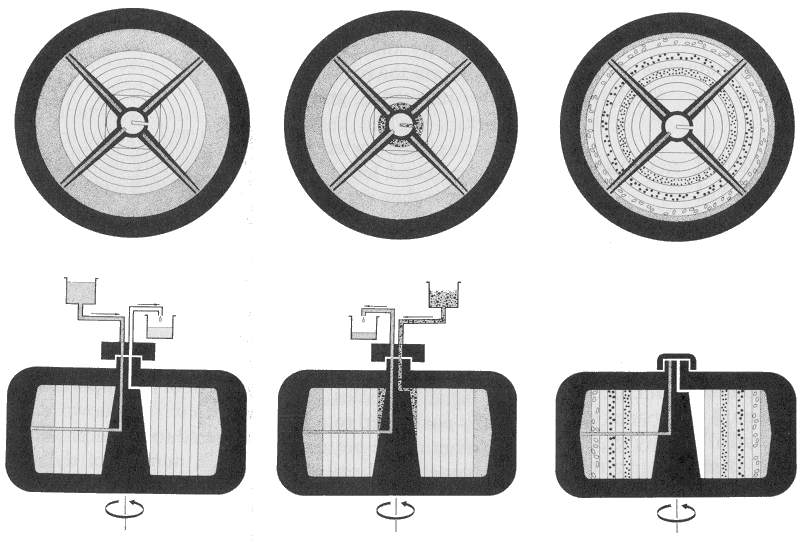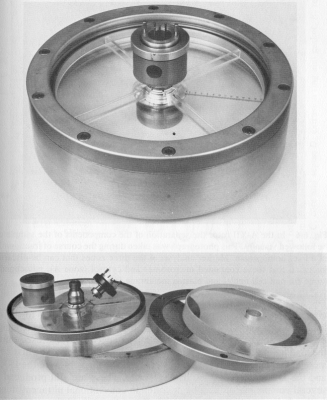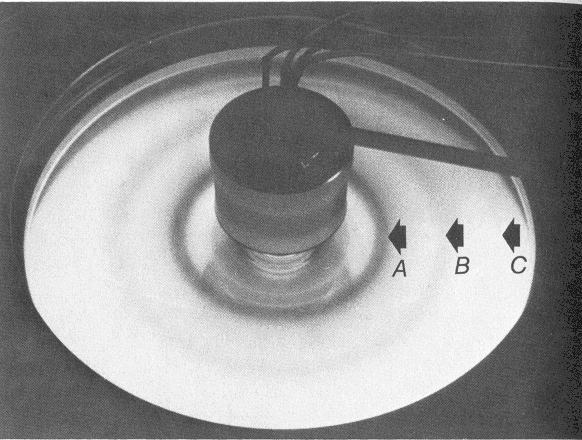


All text material ©2015 by Steven M. Carr
A zonal
analytical rotor is divided into
four quadrants (zones, or sectors). The density-gradient medium
is
pumped
into the sectors while the rotor is turning at low speed. At
high
speed,
a gradient forms with the same density at the same radius in
each
sector, in effect creating a series of concentric rings. Once
the
gradient is formed, molecules
or organelles introduced into the rotor through the hub will
migrate to
the radius where they have the same density as the gradient. The
distribution
in the gradient is photographed with reflected light through the
transparent rotor lid. The photograph (below, right) shows
an
analytical
separation of three cell components in a sucrose gradient,
corresponding
to
(A) microsomes,
(B) mitochondria,
and (C) nuclei and
membranes.
.


